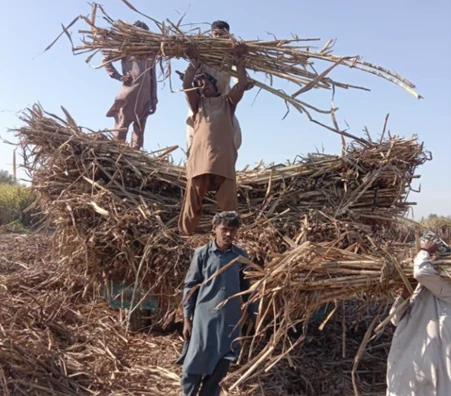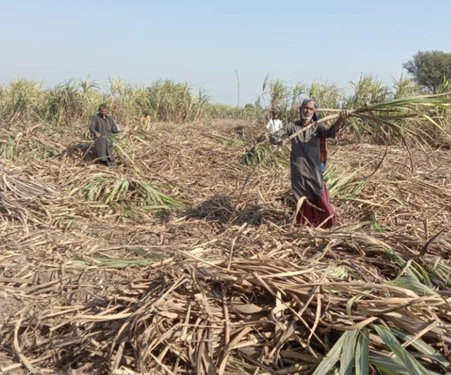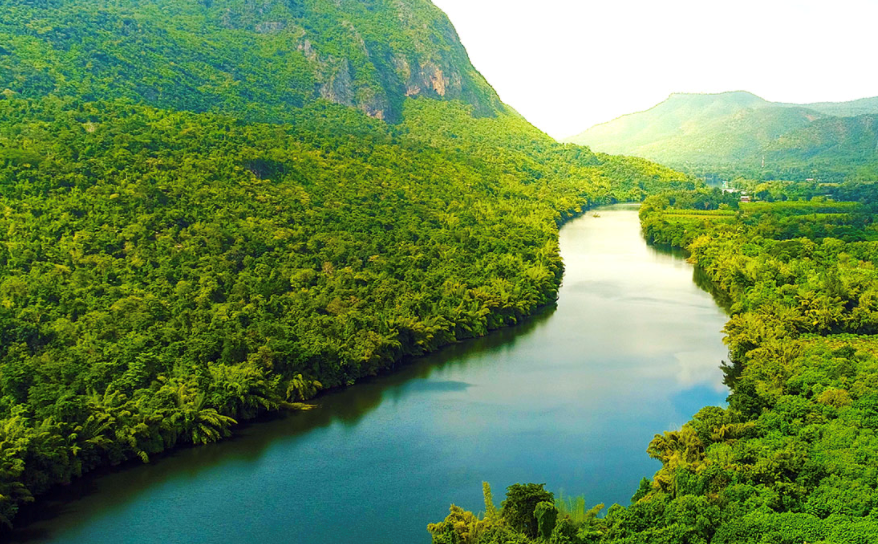Developing pulp mill to recycle biomass waste into degradable tableware in Pakistan
Deze content is in het Engels. Wil je meer informatie? Neem dan contact op!
The Dutch Fund for Climate and Development intends to partner with Ranipur Biomass Limited to develop a unique pulp facility in the Indus Delta in Southern Pakistan.
Ranipur Biomass has been founded by Ranipur Sugar Mills to convert its surplus bagasse, the dry pulpy waste left after juicing sugar cane, into pulp for producing biodegradable tableware and food packaging. The new facility will also pulp cotton stalks which are otherwise burnt.
The pulp mill will also generate renewable energy to power the sugar mill. The sugar factories generate power from its bagasse, which has a high calorific value. The renewable energy is used for around four months a year. However, for the other 8 months fuel oil is used at the facility. With the new pulp facility, the sugar operations can run 100% on renewable energy.
The project has been put forward by the World Wide Fund for Nature Netherlands (WWF-NL) which manages together with SNV Netherlands Development Organisation the DFCD’s Origination Facility to develop new projects for the investment fund. With the approval of the grant, WWF has the intention to sign a €274,500 grant funding agreement with Ranipur Biomass Limited.

Circular model unique for Pakistan
While neighboring countries have been using the circular model to produce degradable products from agricultural waste for many years, the mill would be the first pulp facility in Pakistan to produce degradable tableware from soft biomass. Existing mills are pulping wood to produce paper, paper bags and cardboard.
However, the company is not only in talks with potential buyers in Pakistan itself. It is also in talks with distributors in Dubai. There is a growing market demand for biodegradable products in the Gulf region.
In the next ten years, the company aims to process 396,000 tons of biomass and plans to sell 3,960 million pieces of biodegradable products.
DFCD’s additionality
The company cannot attract a local commercial loan to finance the mill’s €20 million construction costs. Local banks are reluctant to provide a loan because there is no precedent for financing a bagasse or other biomass pulp mill in Pakistan nor are they too familiar with climate impact financing.
In a first step, the DFCD intends to grant a €274,500 subsidy towards the company’s €1.4 million work plan to prepare for the construction of the plant by building a 3 to 5 ton biomass pilot facility.
Strong partner
Ranipur is a dynamic group of successful entrepreneurs who have experience in developing greenfield and brownfield projects in Pakistan, such as setting up a sugar mill and an ethanol distillery. The project has the support from the local Sindh government who actively wants the private sector to change practices.

Environmental, economic and social impact
Selling biodegradable products would reduce air pollution from smog in Pakistan by avoiding biomass is being burnt and trees being cut.
A 50 ton biomass pulp mill in Ranipur would generate economic activity in 400 villages of the Khairpur District, engaging 1,089 farm owners and employing 6,250 farmhands.
The project would economically benefit 495 full-time employees and indirectly benefit 7,869 people. The women of the farmhands would get an opportunity to become biomass collectors and sellers enabling them to earn extra income to support their households. Small farmers who are under the pressure of abandoning their farmlands would also be encourage to collect biomass for reselling to earn additional income.
The company is aiming to achieve the following impact targets during the next ten years:
- Avoiding 2,719,830 tons of biomass from burning
- Avoiding 1,683,000 trees from being cut
- Avoiding 81,470 tons of fuel oil from burning
- Sustainably manage 20,000 hectares of farmland
- 61,750 direct and indirect beneficiaries
- 20,000 hectares of land under sustainable management
- US$ 24 million of private finance mobilized
- 42,075 tCO2e sequestered in total in 10 years and
- 183,330 tCO2e avoided
- Creating 495 full-time employees and indirectly benefiting 7,869 people.
Stuart Beavis, Regional Lead WWF DFCD Asia:
"This is the first project of its kind in Pakistan, turning aricultural waste to biodegradle tableware and packaging. Existing pulp mills use wood, much of it collected illegally from natural forests. With scale this project will have a real climate impact.”
Shunaid Quresh, CEO Ranipur Biomass Limited and Ranipur Sugar Mills:
“After successfully pioneering ethanol production in Pakistan, Ranipur is pioneering value addition to bagasse which is primarily sold as a cheap by-product by 81 sugar mills. The biomass pulp mill willproduce export-quality products targeting the Gulf Countries where single-use plastic is being discouraged.”
Contact
For more information, Stuart Beavis, Regional Lead WWF DFCD Asia Pacific at sbeavis@wwf.org.hk.
In case you have any grievances in relation to this project of the DFCD’s Origination Facility, please contact us through our service desk at servicedesk@wwf.nl.
About Ranipur Biomass Limited
Ranipur will position itself as a major exporter of high quality finished goods and a pulp supplier for the local biodegradable product manufacturers. As a pulp producer and biodegradable product supplier in Pakistan, Ranipur would receive export orders from the distributors in GCC (Gulf Cooperation Council) countries and other international markets. Ranipur is in contact with Dubai-based B2B and B2C distributors for securing off-take agreements.
By 2033, Pakistan is expected to generate enough demand for biodegradable products to allow mushrooming of local tableware manufacturers who would require steady supply of biomass pulp. Ranipur will then further enhance their pulping capacity and supply the biomass pulp to the local entrepreneurs in the country manufacturing single use biodegradable tableware and food packaging materials.
About DFCD
The Dutch Fund for Climate and Development (DFCD) is a climate fund, dedicated to supporting climate adaptation and mitigation projects which benefit vulnerable communities and landscapes. Initially funded by the Dutch government, it is powered by a consortium of four expert organisations: FMO (Dutch Entrepreneurial Development Bank), CFM (Climate Fund Managers), SNV, a global development partner, and WWF Netherlands.

